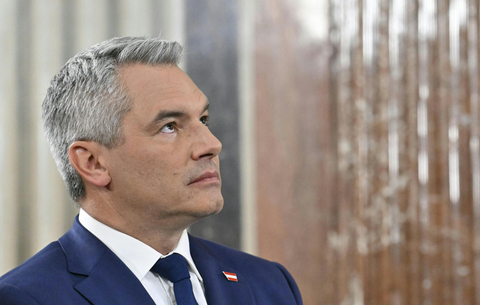The Szigeti Affair and Impartiality
The question is not whether Peter Szigeti, chairman of the National Elections Committee, should resign. He's not really the problem. The problem is with the bureaucrats who appointed him. The mistake was made when he was appointed. He shouldn't have been chosen.
What's the point of placing in charge of a supposedly independent body who will at some point start serving party political aims? Unless that's the point.
There is a certain kind of alternative history that is very popular, one based on parallel realities. It is based on a series of "what if..." questions. We could try it ourselves. What would have happened if the Orban government had chosen as head of the body responsible for guaranteeing free and fair elections somebody who "was less a fan of multi-party republicanism than a believer in a Horthy-style system that mixes parliamentarianism with a form of authoritarian voting?"
Objections would have been raised, throughout the Socialist-Liberal media. So why are we surprised that the opposition is concerned about Szigeti, a man who "is less a fan of multi-party republicanism than a believer in a Communist-style system that mixes a one-party system with self-government." He once served as editorial assistant at a new-left, neo-Marxist journal. In this capacity, he once wrote: "state socialist systems were better at guaranteeing fairness in the form of social equality than capitalist goods-based economies based on competing property that polarise people." Furthermore, he has accused the main opposition party of being an apologist for Nazism.
If the other side appointed as head of the National Elections Committee somebody who said that the Hungary's inter-war government was in any way better than its post-1990 democracy, accusing the Socialists of being apologists for Communism, a flurry of commentaries and leaders would be written attacking that person. Szigeti's appointment looks like a kind of post-surreal choreography. What kind of cost-benefit analysis, what kind of calculation led to the idea of letting Szigeti win out over other candidates? Would it have been impossible to find somebody else, somebody who may have had indirect links to the Left, but who could preserve at least the appearance of impartiality? Peter Szigeti does not have even this ability.
To be clear, the writer of these lines, unlike the paranoiacs of the Far Right, does not claim that Szigeti and his friends falsified election results. This did not happen. But it is not enough to be unbiased - you have to look unbiased as well. But our hero is incapable of giving that impression.
In the West, there are two approaches to appointing officials. One approach is based on the idea of the winner taking all. This happens in the United States, for example, where the President openly appoints ambassadors, prosecutors, supreme court justices and committee chairmen people who are close to his political party. The other approach is the Weberian model, which is based on the idea of an independent, professional public administration bureaucracy. There are plenty examples of this, primarily inside the European Union. In Hungary, at least in theory, every public servant from chief prosecutor to diplomat is an apolitical expert. Of course, there is plenty of speculation over this or that public servant's political leanings. There is plenty of politics behind that illusion of apolitical expertise. But our approach appears to embrace the drawbacks of both approaches.
The best solution to the Szigeti affair would be for him not to be responsible for the next referendum. Whether there is electoral fraud or not, so long as he remains, people will always suspect that it took place.









